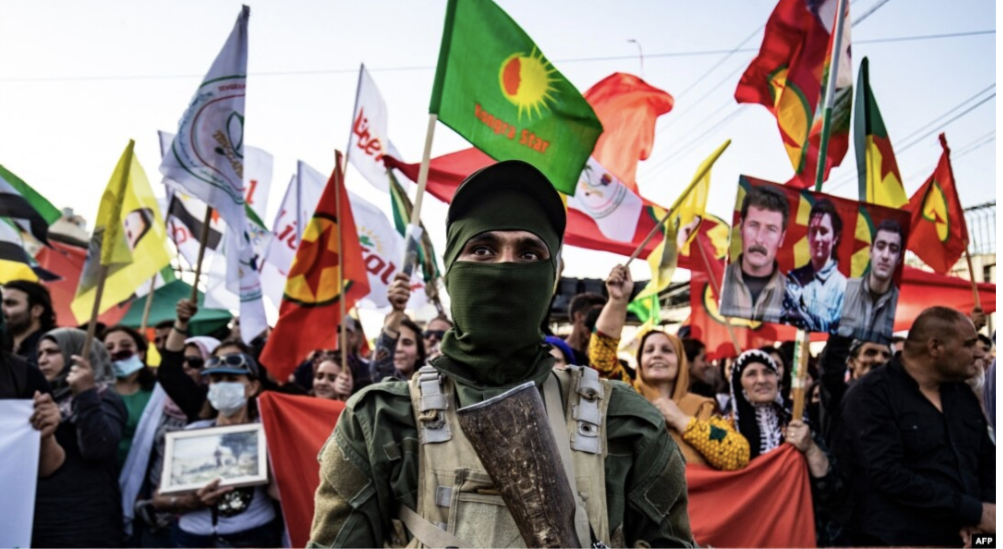The Middle East, primarily Iran, Iraq, Syria and Türkiye are home to nearly 30 million Kurds, with Türkiye housing nearly 30 million Kurds. The PKK (Kurdistan Worker's Party), established by Abdullah Öcalan in 1978, has waged an insurgency since 1984 against Turkish authorities for greater cultural and political rights, primarily with the objective of establishing an independent Kurdish state. The ongoing conflict has resulted in nearly forty thousand deaths.
Popular dissent has seen a steady increase under the leadership of Erdogan as seen in the Gezi Park Protests in June 2013 and the July 2016 coup attempt. But, tensions have also risen between Turkish authorities and Kurdish groups. In particular, the PKK, the Peoples’ Democratic Party (HDP) (a left-wing pro-Kurdish party), and the People’s Protection Unit (YPG) (the armed wing of the Syrian Democratic Union Party (PYD) with ties to the PKK) have increasingly agitated against the government, conducting numerous attacks against Turkish authorities in the southeast.
A two-year ceasefire between Türkiye and the PKK collapsed, following a suicide bombing by suspected self-proclaimed Islamic State militants that killed nearly thirty Kurds near the Syrian border. Following the coup attempt in July 2016, Erdogan cracked down on suspected coup conspirators, arrested an estimated fifty thousand people, and increased air strikes on PKK militants in southeastern Turkey. He also began conducting military operations in Syria against the YPG and the self-declared Islamic State.
After the YPG and SDF consolidated control over territory captured from the Islamic State in northern Syria, Turkey and Turkish-backed Syrian militias, including the Free Syrian Army (FSA), moved to recapture cities and expel the Kurds. Turkish troops and the FSA launched an assault on the city of Afrin in January 2018, eventually capturing the city in March 2018. Turkey continues to threaten assaults on other Kurdish-held areas inside Syria, including Manbij, and despite sharing a common enemy, many of Turkey’s air strikes have targeted Kurdish fighters rather than Islamic State militants.
The alliance of Kurdish fighters has also converged in Iraq, where the Islamic State had advanced toward the autonomous Kurdish region in the northern part of the country. The Peshmerga, armed fighters who protect Iraqi Kurdistan, have joined with Iraqi security forces and received arms and financial assistance from the United States.
Recent Developments
The Turkish military regularly targets Kurdistan Workers Party (PKK) bases in Iraq and in 2018, Turkish President Tayyip Erdogan said he would launch a formal operation against Kurds in Iraq. The Iraqi government has issued formal complaints against Turkish incursions into its sovereign territory. In January 2019, the Turkish government claimed that separatist Kurdish militants tied to the PKK conducted an attack on a Turkish army base in northern Iraq that resulted in damage to military equipment and no casualties.
Following Donald Trump's announcement in December 2018 to begin withdrawing troops from Syria, Syrian Kurds, who have largely fought as members of the U.S.-backed Syrian Democratic Forces (SDF), expressed concerns that Turkey would increase its attacks against them. Ilham Ahmed, the leader of the Syrian Kurds’ largest political organisation, asked western governments to create an international observer force along the Syria-Turkey border. In January 2019, Trump threatened to sanction Turkey should the Turkish military attack U.S.-backed Kurdish forces in Syria and U.S. National Security Advisor John Bolton indicated that the United States would continue to seek reassurances from Erdogan that the Syrian Kurds would not be attacked. As the Syrian Civil War winds down, Erdogan and Trump were in discussions, negotiating the options for establishing a safe zone and whether the United States will retrieve the weapons it provided to the Syrian Kurds.
